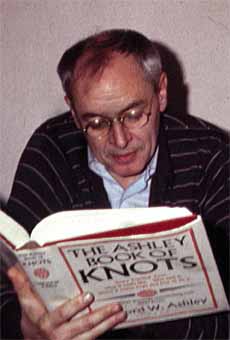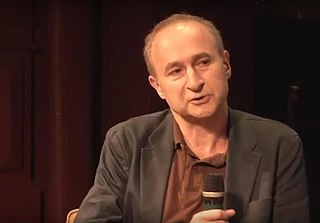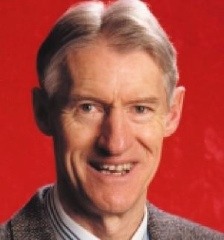Related Research Articles
Richard Bentall is a Professor of Clinical Psychology at the University of Sheffield in the UK.

Ronald David Laing, usually cited as R. D. Laing, was a Scottish psychiatrist who wrote extensively on mental illness – in particular, the experience of psychosis. Laing's views on the causes and treatment of psychopathological phenomena were influenced by his study of existential philosophy and ran counter to the chemical and electroshock methods that had become psychiatric orthodoxy. Laing took the expressed feelings of the individual patient or client as valid descriptions of personal experience rather than simply as symptoms of mental illness. Though associated in the public mind with the anti-psychiatry movement, he rejected the label. Politically, he was regarded as a thinker of the New Left. Laing was portrayed by David Tennant in the 2017 film Mad to Be Normal.
Sluggish schizophrenia or slow progressive schizophrenia was a diagnostic category used in the Soviet Union to describe what was claimed to be a form of schizophrenia characterized by a slowly progressive course; it was diagnosed even in patients who showed no symptoms of schizophrenia or other psychotic disorders, on the assumption that these symptoms would appear later. It was developed in the 1960s by Soviet psychiatrist Andrei Snezhnevsky and his colleagues, and was used exclusively in the USSR and several Eastern Bloc countries, until the fall of Communism starting in 1989. The diagnosis has long been discredited because of its scientific inadequacy and its use as a means of confining dissenters. It has never been used or recognized outside of the Soviet Union, or by international organizations such as the World Health Organization. It is considered a prime example of the political abuse of psychiatry in the Soviet Union.
The Hearing Voices Movement (HVM) is the name used by organizations and individuals advocating the "hearing voices approach", an alternative way of understanding the experience of those people who "hear voices". In the medical professional literature, ‘voices’ are most often referred to as auditory verbal hallucinations. The movement uses the term ‘hearing voices’, which it feels is a more accurate and 'user-friendly' term.
Hearing Voices Networks, closely related to the Hearing Voices Movement, are peer-focused national organizations for people who hear voices and supporting family members, activists and mental health practitioners. Members may or may not have a psychiatric diagnosis. Networks promote an alternative approach, where voices are not necessarily seen as signs of mental illness and regard hearing voices as a meaningful and understandable, although unusual, human variation. Voices are not seen as the problem, rather it is the relationship the person has with their voices that is regarded as the main issue.

Ernst Kretschmer was a German psychiatrist who researched the human constitution and established a typology.

Jim van Os is a Dutch academic and psychiatrist. He is Professor of Psychiatry and medical manager of the Brain Center at Utrecht University Medical Center, the Netherlands.

Michael Argyle was one of the best known English social psychologists of the twentieth century. He spent most of his career at the University of Oxford, and worked on numerous topics. Throughout his career, he showed strong preferences for experimental methods in social psychology, having little time for alternative approaches such as discourse analysis.
Gordon Sidney Claridge was a British psychologist and author, best known for his theoretical and empirical work on the concept of schizotypy or psychosis-proneness.
Andrew Samuels is a British psychotherapist and writer on political and social themes from a psychological viewpoint. He has worked with politicians, political organisations, activist groups and members of the public in Europe, US, Brazil, Israel, Japan, Russia and South Africa as a political and organisational consultant. Clinically, Samuels has developed a blend of Jungian and post-Jungian, relational psychoanalytic and humanistic approaches.
Anna Motz is a Consultant Clinical and Forensic Psychologist with extensive clinical experience with women as perpetrators of violence and with the staff teams who work with them. Formerly president of the International Association for Forensic Psychotherapy (IAFP), she is the author of The Psychology of Female Violence: Crimes Against the Body.

Irving Isadore Gottesman was an American professor of psychology who devoted most of his career to the study of the genetics of schizophrenia. He wrote 17 books and more than 290 other publications, mostly on schizophrenia and behavioral genetics, and created the first academic program on behavioral genetics in the United States. He won awards such as the Hofheimer Prize for Research, the highest award from the American Psychiatric Association for psychiatric research. Lastly, Gottesman was a professor in the psychology department at the University of Minnesota, where he received his Ph.D.
Andrei Snezhnevsky was a Soviet psychiatrist whose name was lent to the unbridled broadening of the diagnostic borders of schizophrenia in the Soviet Union, the key architect of the Soviet concept of sluggish schizophrenia, the inventor of the term "sluggish schizophrenia", an embodier of history of repressive psychiatry, and a direct participant in psychiatric repression against dissidents. He was an academician of the USSR Academy of Medical Sciences, the director of the Serbsky Institute for Forensic Psychiatry (1950–1951), the director of the Institute of Psychiatry of the USSR Academy of Medical Sciences (1962–1987), and the director of the All-Union Mental Health Research Center of the USSR Academy of Medical Sciences (1982–1987).
Social constructionism, a branch of sociology, queries commonly held views on the nature of reality, touching on themes of normality and abnormality within the context of power and oppression in societal structures.
Delusional intuition is an illusion in the context of the intuitive rather than an experience of false intuition. The person experiences something that resembles the intuitive, but instead, the experience is qualified as delirious. This illusion is also described as autochthonous.
Simple-type schizophrenia is a sub-type of schizophrenia included in the International Classification of Diseases (ICD-10), in which it is classified as a mental and behaviour disorder. It is not included in the current Diagnostic and Statistical Manual of Mental Disorders (DSM-5) or the upcoming ICD-11, effective 1 January 2022. Simple-type schizophrenia is characterized by negative ("deficit") symptoms, such as avolition, apathy, anhedonia, reduced affect display, lack of initiative, lack of motivation, low activity; with absence of hallucinations or delusions of any kind.

Professor Dame Til Wykes, Lady Davies is an English academic, author and editor.
Psychiatry is, and has historically been, viewed as controversial by those under its care, as well as sociologists and psychiatrists themselves. There are a variety of reasons cited for this controversy, including the subjectivity of diagnosis, the use of diagnosis and treatment for social and political control including detaining citizens and treating them without consent, the side effects of treatments such as electroconvulsive therapy, antipsychotics and historical procedures like the lobotomy and other forms of psychosurgery or insulin shock therapy, and the history of racism within the profession in the United States.
Michael D. Robbins is an American author, psychoanalyst, and former professor of Psychiatry at Harvard Medical School and the University of California, San Francisco. His psychoanalytic research has focused on how the mind works in western and non-western cultures, particularly with regard to schizophrenia and other psychoses, language, creativity, conscious and unconscious mental processes.
Sarah Elizabeth Curtis, is a British geographer and academic, specialising in health geography. From 2006 to 2016, she was Professor of Health and Risk at Durham University; she is now professor emeritus. A graduate of St Hilda's College, Oxford, she was Director of the Institute of Hazard Risk and Resilience at Durham between 2012 and 2016. She previously researched and taught at the University of Kent and at Queen Mary, University of London.
References
- ↑ "Professor Mary Boyle - UEL Psychology (staff profile)". www.uel.ac.uk. Archived from the original on 18 September 2008.
- ↑ "CalmView: Record".